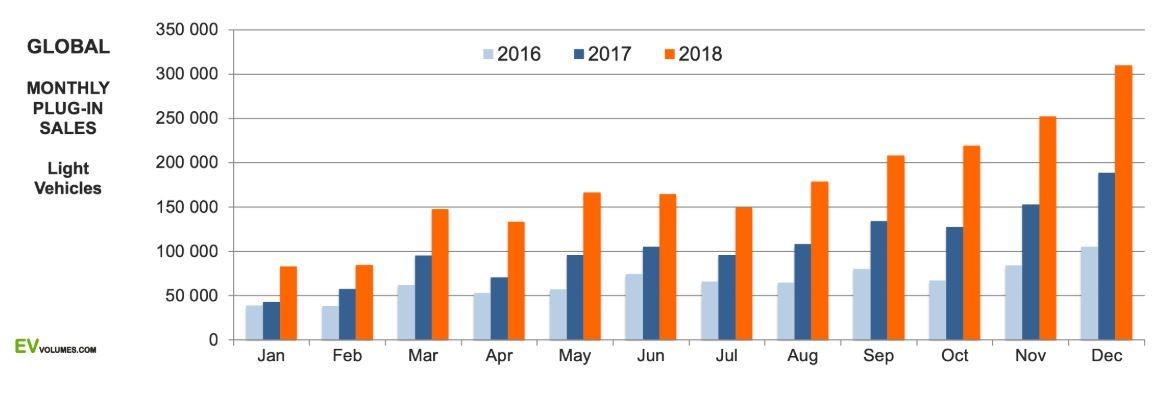The number of electric vehicles on the world’s roads is rising fast. Latest figures show there are more than three million and sales are growing at close to 75% a year. But now doubts have been raised about the ethics of buying one.
Amnesty International says human rights abuses, including the use of child labour, in the extraction of minerals, like cobalt, used to make the batteries that power electric vehicles is undermining ethical claims about the cars.
Kumi Naidoo, Amnesty’s Secretary General, told the recent Nordic EV Summit in Oslo, that climate change should not be tackled at the expense of human rights. “Without radical changes, the batteries which power green vehicles will continue to be tainted by human rights abuses,” he said.
Child labour
Amnesty points to serious health risks to child and adult workers in cobalt mines in the Democratic Republic of Congo, documented in a report it issued. More than half the world’s cobalt comes from southern DRC, much of it from artisanal mines that produce 20% of the country’s output.
Artisanal miners as young as seven were seen by researchers who visited nine sites including deep mines dug by hand using basic tools. Miners, the youngest of whom were earning as little as $1 a day, reported suffering chronic lung disease from exposure to cobalt dust.
Cobalt from these mines is sold on to major producers. No country has laws requiring producers to report on their supply chains, which Amnesty says means the chance electric vehicle batteries are “tainted with child labour and other abuses” is unacceptably high.
Battery manufacture now accounts for 60% of the 125,000 tonnes of cobalt mined globally each year.
A move last year by the London Metal Exchange to ban the sale of tainted cobalt was opposed by a consortium of 14 NGOs, including Amnesty, on the grounds it would simply drive the trade underground. They called for greater traceability of the mineral’s sources.
The World Economic Forum’s Global Battery Alliance notes two major challenges:
“First, raw materials needed for batteries are extracted at a high human and environmental toll. This includes, for example, child labour, health and safety hazards in informal work, poverty and pollution. Second, a recycling challenge looms over the eleven million tonnes of spent lithium-ion batteries forecast to be discarded by 2030, with few systems in place to enable reuse and recycling in a circular economy for batteries.”
The OECD Forum on Responsible Mineral Supply Chains meets in Paris next month, where members are expected to demand companies identify their cobalt sources. Apple, BMW, Daimler, Renault, and battery maker Samsung SDI have already agreed to publish their supply chain data.
Amnesty says most manufacturing of lithium-ion batteries takes place in China, South Korea and Japan, where electricity generation remains dependent on coal and other fossil fuels. They said makers should disclose the carbon footprint of their products.
Accelerating industry
Electric car ownership is rising fast. The International Energy Agency predicts there will be 125 million in use worldwide by 2030 and potentially double that number if governments step up the pace of legislative change.
Last year, 2.1 million new electric vehicles were sold worldwide. China is the world’s largest electric car market, accounting for 1.2 million – 56% of all electric vehicles sold in 2018. China also accounts for 99% of sales of electric trucks, buses, motorcycles and scooters.
The US came a distant second with 361,000 new electric cars sold in 2018, almost half of which were the new Tesla 3 model. In terms of market share, Norway leads the way – 49% of new cars sold were pure or hybrid electric.
The pressure to go green is increasing as bans on the sale of new fossil-fuelled cars loom in Europe. Germany will stop the sale of all new petrol and diesel cars from 2030, Scotland from 2032, and France and the UK from 2040.
Long road ahead
But the goal of zero-emission driving is still a long way off. Electric cars still only account for 2.4% of global new sales and despite Norway’s stellar sales rate, electric cars still account for only one in eight of vehicles on the road in Oslo.
Sales in other European countries are much lower. In Italy only 0.26% of new sales last year were electric cars, with buyers still preferring diesel over petrol. Even in Spain, which is a major car producer, only 0.5% of new sales were electric.





